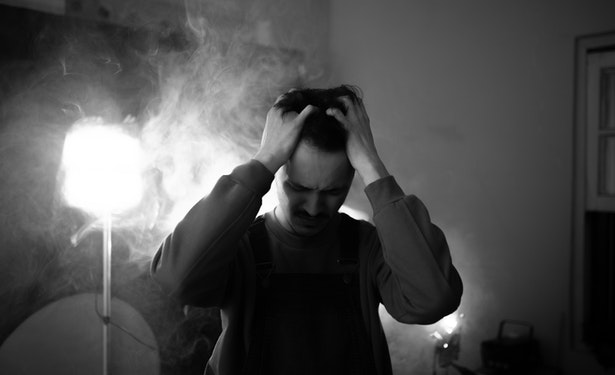For 1 in 5 men, anxiety is more than just an occasional worry – it’s a daily reality.
Date: Wednesday 25 Jun 2025
Half as many men receive an anxiety disorder diagnosis in comparison to women. Why? Many men don’t recognise anxiety symptoms, or delay seeking help, thinking these symptoms will go away.

In a recent article by Dr Krista Fisher from the Movember Institute of Men's Health, they analysed the paramedic records of 694 young men aged 15–25 years who presented to Australian ambulance services with anxiety in 2019. While each case is unique, common themes emerged that could be categorised into three different anxiety types.
Psychosomatic anxiety: The most frequent presentation involved sudden, intense physical symptoms (racing heart, chest pain, breathing difficulties) that closely resembled serious medical conditions.
Substance-related anxiety: The use of alcohol or drugs that either triggered or worsened pre-existing anxiety symptoms.
Complex anxiety: Severe mental distress often accompanied by self-harm or suicidal thoughts, frequently linked to situational stressors such as housing instability, financial difficulties, or relationship problems.
Anxiety, especially in men, often hides in plain sight. It’s there in the clenched jaw, the restless nights, the sudden outbursts, or the quiet withdrawal. It’s there in the moments when words fail, and silence takes over.
For many men, anxiety doesn’t announce itself with a name. It shows up as tension in the body, irritability, or a constant need to stay busy. It’s not always the racing thoughts or the panic attacks we might associate with anxiety. Sometimes, it’s just a feeling, a heaviness, a tightness, a sense that something’s not quite right.
But why is it so hard for men to name this experience?
Society has long told men that strength means control. That to be a man is to be unshaken, unbothered, and always in charge. Anxiety, with its unpredictability and its physical grip, feels like the opposite of that. It’s no wonder, then, that so many men push it down, ignore it, or try to power through.
Yet, here’s the paradox: the more we fight anxiety, the stronger it seems to grow. It thrives in silence, in isolation, in the spaces where we feel we can’t talk about it.
The cost of this silence is immense. Anxiety doesn’t just affect the mind; it impacts the body, relationships, and even the ability to show up fully in life. For young men, especially, the weight of unspoken anxiety can lead to struggles in school, work, and friendships. It can make the world feel smaller, more threatening, and harder to navigate.
But what if strength could mean something different?
Here at BIA, we are inviting men to redefine what it means to be strong. Strength isn’t about pretending everything’s fine. It’s about noticing what’s really there, without judgment. It’s about recognising that anxiety isn’t a flaw or a failure; it’s a signal. A sign that something in your life needs attention, care, or change.
Anxiety, when met with curiosity instead of resistance, can become a guide. It can point to the pressures you’re carrying, the expectations you’ve internalised, or the fears you’ve been avoiding. It can remind you that you’re human—that you’re not meant to carry everything alone.
So, what can we do?
1. Name it. Start by acknowledging what you’re feeling, even if it’s just to yourself. You don’t need to have the perfect words. “I feel off” or “Something’s not right” is enough.
2. Share it. Find someone you trust—a mate, a family member, or a professional—and let them in. You don’t have to have all the answers. Just sharing what you’re experiencing can be a relief.
3. Move with it. Anxiety often lives in the body. Physical activity, deep breathing, or even a walk outside can help release some of the tension.
4. Challenge the narrative. Remind yourself that anxiety doesn’t make you weak. It’s not a reflection of your worth or your masculinity. It’s a part of being human.
5. Seek support. Whether it’s through a resource like Brothers in Arms, a therapist, or a support group, know that help is available. You don’t have to navigate this alone.
We don’t rush to fix or solve. We sit with what’s here. We notice the strength it takes to face anxiety, to name it, and to seek support.
If you’re reading this and recognising yourself, or someone you care about, know that you’re not alone. Anxiety doesn’t have to define you, but it does deserve your attention.
Take your time. There’s no rush. This space will hold steady, whenever you’re ready to step into it.
Would you like to explore more about how we can support you? Or perhaps you’d like to learn about tools like Blethr that can help create moments of connection and calm? You can start a chat with BraveheartGPT and learn more below.
Strength isn’t about fixing, it’s about noticing what’s already within.
Read the full Movember article here:

